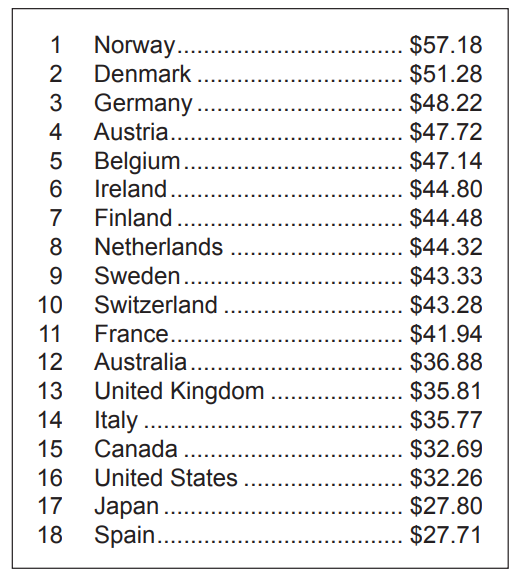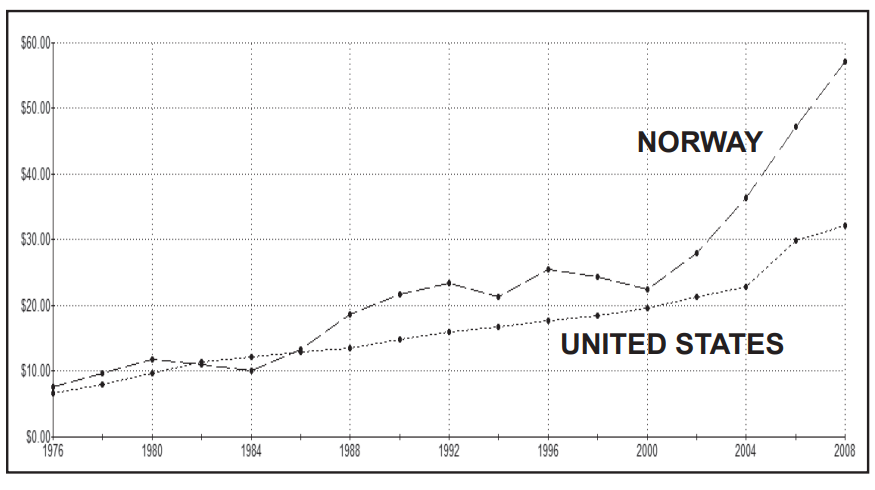“Worker involvement in company decision-making strengthens a democratic, social and competitive Europe,” this is the main conclusion of the worker-participation website run by the European Trade Union Instititute. The following information comes from their website.
Involving workers in company decisions not only represents an important element of the European Social Model but also makes good economic sense in modern economies. Against this background the EU has committed itself to the aim of promoting strong workers’ rights to information, consultation and participation at all levels of the company.
The website worker-participation.eu gives you access to what is happening at the European level in this field and provides you with information on the national background to industrial relations in each of the 27 EU member states.
Why worker participation in Europe?
• Worker participation is a Fundamental Right in Europe laid down by Article 27 of the European Charter of Fundamental Rights.
• Worker participation is an essential part of the European Social Model. At the same time, worker participation strengthens the European Democracy in practice and the economic competitiveness of European companies.
• Worker participation highlights the fact that a company should not be defined by the sole interest of its shareholders and managers but also by the stakeholders, such as workers.
• Worker participation means that social interests can be addressed at the decision-making level of a company.
• Worker participation has to be supported by European legislation in order to enforce workers making their interests effective to the same extent as those interests introduced by the shareholders.
• European legislation on worker participation rights at the transnational level is based on a broad political consensus of the European Parliament and among European Governments.
Worker co-determination in Germany
Member countries of the European Union are free to implement worker participation in different ways. In Germany, the law requires worker representatives to have seats on the board of directors of all companies employing over 500 people. A Worker representative serves as director of human resources and on management’s executive or supervisory committee at the plant level.
Worker representatives or works councils are elected by workers in smaller companies for information, consultation, and decision making on employment matters.
Workers involvement has led to high productivity, low levels of strike actions, and better pay and conditions. After years of co-operation, employers accept the fact that workers play an important part in plant success. A practical approach has evolved among both parties, with each aiming to reach decisions based on consensus. Worker representatives no longer automatically reject every proposal for structural reform, increased efficiency of even layoffs; instead, they examine each suggestion from an inclusive, long-term perspective.
At the core of this approach is transparency of information, such as economic data. Co-determination is thus practiced at every level, from the local plant to firm headquarters.
In Norway, the law insures that workers, whether unionized or not, have the right to participate in decisions that affect their jobs and workplace. In 1977 Norway passed the Working Environment Act, which was update in 2005 and 2007. The provisions in the Act are part of the law and common practice in many countries of Western Europe. Following are some of the highlights of the Act which shows how worker participation and workplace democracy are an integrated part of their social and economic system.
Employees and unions are involved
Undertakings of 50 or more employees shall have a working environment committee. The employer, employees, and safety and health personnel shall be represented on the committee.
The working environment committee shall be involved in plans for construction work, purchase of machinery, work processes, preventative safety, working hour arrangements, and reduced capacity of individual employees.
Undertakings of 50 or more employees shall provide information concerning all issues of importance concerning working conditions and discuss such issues with the employees elected representatives.
The information shall be provided as early as possible so the employees elected representatives can understand the information, do their own investigation, and prepare for consultation with the employer
The consultations shall allow the elected representatives to meet the employer at the appropriate level and receive responses to their questions. Consultation shall aim to reach an agreement.
Law applies to businesses of all sizes
Any undertaking of 10 or more employees shall elect safety representatives. The safety representative shall safeguard the interests of employees and their safety, health, and welfare. The safety representative may halt work if the life of health of employees is in immediate danger and there is no other alternative to avoid danger. The employer shall pay the cost of training safety representatives and give them time to do their work as safety representatives during normal working hours.
Undertakings of 20 to 50 employees shall have a working environment committee if required by any of the parties.
Consultation with workers
The employees and their elected representatives shall be continuously informed, trained, and take part in designing the work and work environment. The design of each employee’s working situation shall account for the employee’s capacity for work, proficiency, age, and other conditions.
Jobs are designed to avoid stress, preserve dignity
As far as possible, employees shall be given the opportunity for variation in their assignments. Work will be arranged to preserve the employee’s integrity and dignity. Work shall be arranged to enable contact and communication with other employees. The workplace shall be arranged to avoid adverse physical strain. Necessary aids shall be made available.
The working environment shall provide healthy and meaningful work, free from harmful physical and mental stress. The working environment shall adapt to the individual employee’s capabilities and circumstances of life. The working environment shall be developed in cooperation between the employer and employee organizations.
Worker safety
Employees have the right to interrupt work if there is a danger to life or health. The employer is responsible to safeguard the health, environment, and safety of employees. This shall be done in cooperation with the employees and their elected representatives.
The standards of safety, health, and working environment shall be continuously improved. There shall be variation in the work to avoid heavy lifting and monotonous repetitive work. When new machinery is installed, employees are not to be subjected to undesirable strain from vibration and uncomfortable working
—see “Norway,” page 7
Average hourly compensation paid to workers in different countries in 2008
How can Norweigan companies compete and survive in a global economy when their total labor cost is $57.18 an hour and a U.S. employer pays only $32.26 an hour in wages, benefits, social security, and other government required employee costs?
The chart on the far right shows that Norway’s total compensation has been higher than the United States for 34 years and lower in only one year—1984.
Norweigan companies do well because of worker participation and workplace democracy.
The data for these charts comes from the United States Bureau of Labor Statistics International Labor Comparisons program.


The chart above shows that Norway’s total compensation paid to production workers have been higher than the United States for 34 years. United States workers were the highest paid prior to 1976 but have fallen behind.
